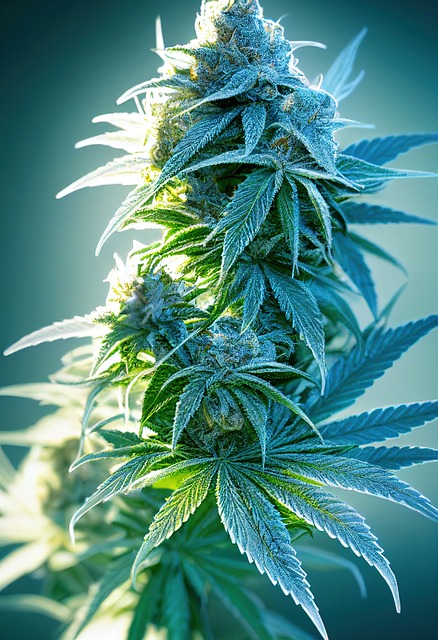2023 marks a period of complexity in Nebraska's stance on cannabis-related compounds, with THCA (Tetrahydrocannabinolic Acid), the non-psychoactive precursor to THC, occupying a legal grey area. Despite THC being classified as a Schedule I substance under both state and federal law in Nebraska, there is ongoing legislative debate aimed at differentiating THCA from its psychoactive form. As of now, while not explicitly legalized for recreational or medicinal use, the 2018 Farm Bill has paved a path for hemp-derived products containing less than 0.3% THC to be permissible, which includes some THCA products. Users and advocates in Nebraska are closely monitoring legislative changes with the hope of clarification and expanded access to THCA products. It's important for consumers and businesses to stay informed about local regulations regarding THCA legality in Nebraska, ensuring compliance with the existing laws that govern cannabinoid use and possession. THCA is recognized for its potential health benefits, including anti-inflammatory properties, and while it's legal under specific conditions in Nebraska, users should be mindful of dosage due to a lack of standardized guidelines and be aware of the different risks associated with various consumption methods. Consulting healthcare professionals is recommended before using THCA flower to address potential health concerns and ensure safe use within the confines of the law.
Exploring the nuances of THCA flower, an emerging figure in the cannabinoid landscape, this article demystifies its status, effects, and implications. With a focus on its legal standing in Nebraska—where thca legal in Nebraska remains a topic of discussion—we delve into the potential side effects one may experience after consumption. Through a thorough examination of dosage and safety considerations, we aim to provide clarity amidst the confusion. By synthesizing the latest medical research on its benefits and risks, this piece also contrasts THCA’s properties with those of other cannabinoids, offering a comprehensive view for informed decision-making.
- Understanding THCA Flower and Its Legal Status in Nebraska
- Potential Side Effects of THCA Flower Consumption
- Dosage and Safety Considerations for THCA Flower Use
- Medical Research on the Benefits and Risks of THCA
- How THCA Flower Differs from Other Cannabinoids and Its Implications
Understanding THCA Flower and Its Legal Status in Nebraska
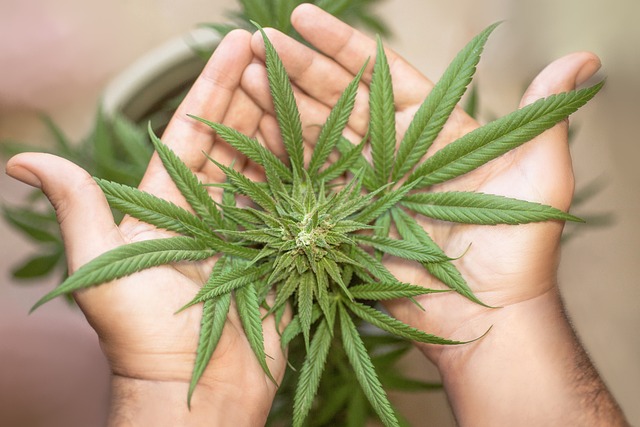
THCA, or Tetrahydrocannabinolic Acid, is a non-psychoactive cannabinoid found in raw cannabis plants, which, when heated, converts into the more well-known psychoactive compound THC. As interest in cannabinoids for their potential health benefits grows, understanding THCA and its legal status becomes increasingly important. In Nebraska, the legal landscape regarding THCA flower is nuanced. The Cornhusker State has traditionally maintained a strict stance on cannabis, with laws that categorize it as a Schedule I substance under the Nebraska Controlled Substances Act, reflecting the federal government’s classification under the Controlled Substances Act. However, recent legislative efforts have sought to differentiate between THC and other cannabinoids like THCA, recognizing the compound’s non-psychoactive nature. As of my knowledge cutoff in 2023, Nebraska has not explicitly legalized the cultivation, possession, or sale of THCA flower for recreational or medicinal purposes, leaving the legal status somewhat ambiguous. Nevertheless, hemp-derived products containing less than 0.3% THC are legal under the 2018 Farm Bill, which has opened a pathway for some THCA products in the state. Users and advocates in Nebraska continue to navigate this complex legal terrain, with a keen eye on legislative developments that could clarify and potentially expand the use of THCA products for various purposes. It is imperative for consumers and businesses alike to stay informed on local regulations, as compliance with these laws is crucial.
Potential Side Effects of THCA Flower Consumption
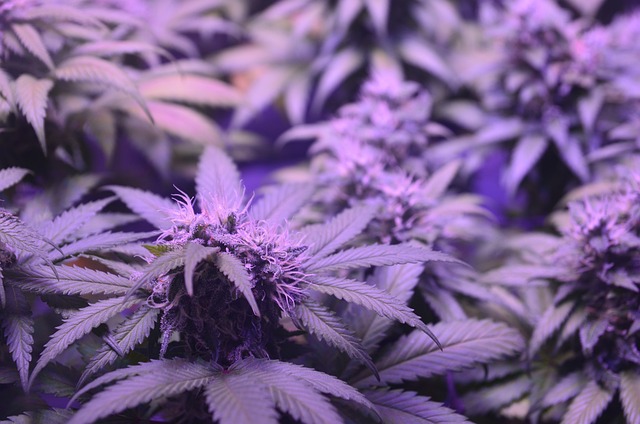
Consumers interested in the therapeutic or psychoactive effects of cannabis often explore various cannabinoids, including Tetrahydrocannabinolic Acid (THCA). THCA is the precursor to THC, the primary psychoactive component of cannabis. As interest and research into the potential benefits of THCA grow, so does the curiosity about its consumption and side effects. It’s important for users to understand that while THCA is legal in Nebraska under certain conditions, its effects can vary significantly from those of THC or CBD.
THCA flower, which contains the non-psychoactive acidic form of THC, has been reported to have potential anti-inflammatory and analgesic properties, making it a subject of interest for medical applications. However, like any cannabinoid, THCA consumption can lead to side effects. Common side effects may include dry mouth, red eyes, drowsiness, and occasional anxiety or paranoia, particularly at higher doses. Additionally, individuals with certain health conditions should approach THCA with caution, as it may interact with medications or exacerbate specific ailments. The legal status of THCA in Nebraska requires adherence to the state’s regulations regarding cannabinoid use and possession, ensuring that consumers are within the bounds of the law while exploring the potential benefits and side effects of THCA flower.
Dosage and Safety Considerations for THCA Flower Use
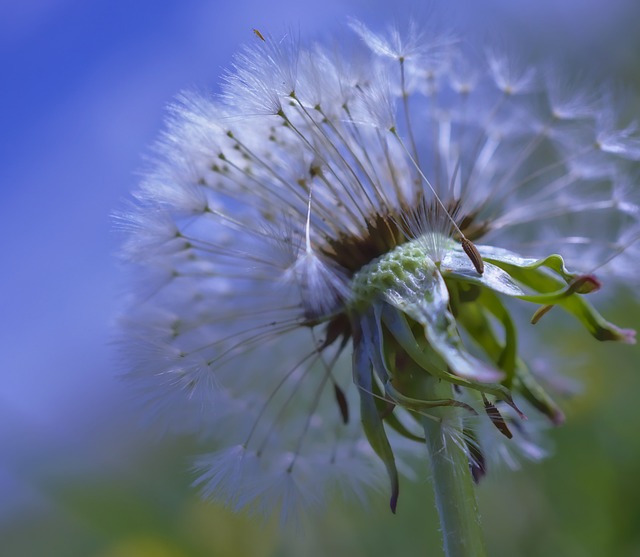
THCA, or tetrahydrocannabinolic acid, is a non-psychoactive cannabinoid found in the Cannabis sativa plant that is believed to retain some of the therapeutic properties of its decarboxylated form, THC. As legal restrictions on cannabis products evolve, such as in Nebraska where certain forms of hemp-derived CBD and THCA are legal under specific conditions, understanding dosage and safety considerations is paramount for users.
When considering THCA flower use, it’s essential to approach dosage with caution. Unlike many pharmaceuticals, there is no universally standardized dosing guideline for THCA due to varying product concentrations and individual physiological responses. Users should start with a low dose to gauge effects before gradually increasing as needed, always within the recommended limits. Safety considerations also extend to the method of consumption; inhaling THCA flower involves different risks compared to ingesting edibles or topicals. Nebraska’s legal framework requires that consumers adhere to state guidelines regarding possession and use, emphasizing the importance of informed usage. It’s advisable to consult with a healthcare provider before incorporating THCA flower into one’s wellness routine, particularly for individuals with pre-existing health conditions or those taking other medications. Adhering to local regulations and seeking professional advice can help ensure a safe experience with THCA products.
Medical Research on the Benefits and Risks of THCA
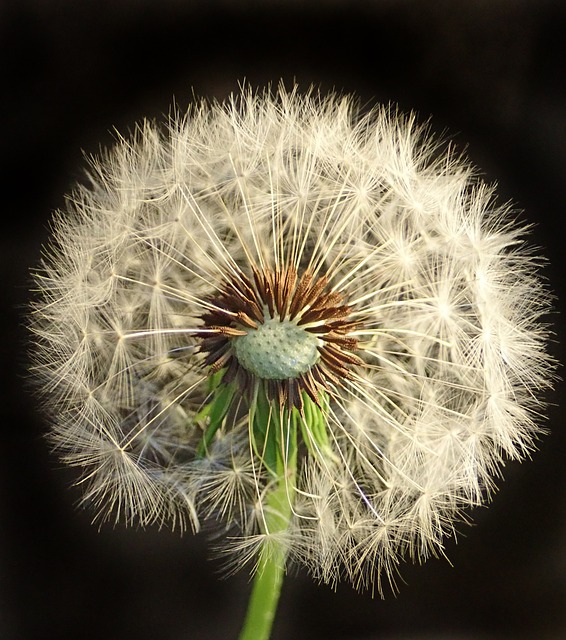
Medical research on the effects of tetrahydrocannabinolic acid (THCA) has been a subject of growing interest, particularly as it pertains to both its potential benefits and risks. THCA is the non-psychoactive precursor to THC found in raw cannabis and hemp plants. While THCA’s legal status varies across different states, with Nebraska being one of the few that has not legalized medical or recreational cannabis use, research conducted under appropriate regulatory frameworks has explored its therapeutic potential. Studies indicate that THCA may offer anti-inflammatory, analgesic, and neuroprotective effects without the psychoactive properties associated with THC. This has led to investigations into its role in treating conditions such as inflammation, nausea, and neuropathic pain. On the other hand, research also cautions against overlooking potential side effects or interactions with other medications. As with any substance, understanding the balance of benefits versus risks is crucial for medical professionals and patients alike. The legal status of THCA in Nebraska poses unique considerations for researchers and consumers within the state, emphasizing the importance of adhering to state laws while also considering the broader implications of this cannabinoid’s research findings.
How THCA Flower Differs from Other Cannabinoids and Its Implications

Delta-9-tetrahydrocannabinolic acid (THCA) is a cannabinoid found in the Cannabis sativa plant, which exists in its raw, non-psychoactive form. Unlike other cannabinoids such as delta-9-tetrahydrocannabinol (THC) and cannabidiol (CBD), THCA does not induce the traditional ‘high’ associated with cannabis use. This distinction is significant, particularly in regions like Nebraska, where THCA’s legal status may differ from that of its psychoactive counterpart. In Nebraska, the legality of cannabinoids can be complex, with varying laws for different types of compounds. THCA flowers, being non-psychoactive and derived from hemp strains containing less than 0.3% delta-9-THC, are often considered legal under the 2018 Farm Bill and subsequent state legislation. However, it’s crucial for consumers to stay informed about local regulations, as interpretations of these laws can vary.
The implications of THCA flower’s differences from other cannabinoids extend beyond legality. Preliminary research suggests that THCA may possess anti-inflammatory, neuroprotective, and potential analgesic properties without the psychoactive effects associated with THC. This has led to growing interest in the therapeutic uses of THCA flower for conditions where such effects are undesirable or contraindicated. In Nebraska, where the medical marijuana program is limited, THCA provides an alternative for those seeking the potential health benefits of cannabinoids without the high. As such, the distinction between THCA and other cannabinoids is not just a matter of legal compliance but also one of therapeutic choice for consumers looking to harness the unique properties of this cannabinoid.
In conclusion, the exploration into THCA flower’s effects and legal status in Nebraska reveals a nuanced understanding of its potential benefits and risks. While medical research continues to shed light on the advantages and pitfalls of THCA consumption, it is imperative for users to approach its use with caution, adhering strictly to dosage guidelines and safety considerations. The distinction between THCA and other cannabinoids holds significant implications for both therapeutic applications and regulatory frameworks. As such, individuals interested in the therapeutic properties of THCA should consult healthcare professionals and stay informed on the evolving legal landscape surrounding this compound. With a clear understanding of its potential side effects and proper usage guidelines, users can make informed decisions regarding THCA flower’s role in their wellness regimen.
